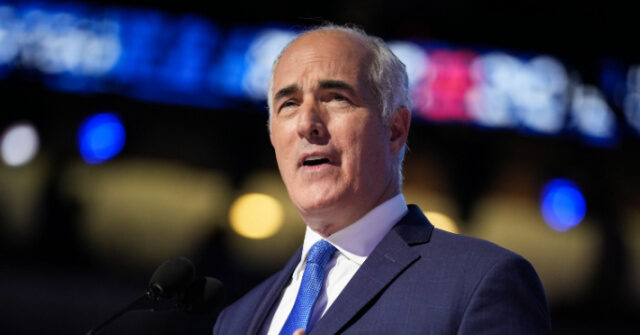
Many citizens want more government control of the economy to curb rising prices. It is the worst strategy imaginable. Interventionist governments never reduce consumer prices because they benefit from inflation, dissolving their political spending commitments in a constantly depreciated currency. Inflation is the perfect hidden tax. The government makes the currency less valuable by issuing more units of fiat money, partially dissolves its debt in real terms, collects more taxes, and presents itself as the solution to rising prices with subsidies in an increasingly worthless currency. That is why socialism and hyperinflation go hand in hand.
Socialism rejects human action and economic calculation and sells a false image of a government that can create wealth at will by issuing more units of fiat currency. Obviously, when inflation arrives, the socialist government will use its two favorite tools: propaganda and repression. Propaganda, which accuses stores and businesses of driving up prices, and repression, which occurs when social unrest intensifies and citizens legitimately hold governments accountable for scarcity and high prices, are the two main strategies.
If you want lower prices, you need to give less economic power to the government, not more. Only free markets, competition, and open economies help decrease consumer prices. Many readers might think that we currently have a free market with competitive and open economies, but the reality is that we live in increasingly intervened and overregulated nations where central banks and governments work to perpetuate unsustainable public deficits and debt. Therefore, they continue to print more money, leading many to question why it is getting harder for families to make ends meet, buy a home, or for small businesses to prosper. The government is slowly eating away the currency it issues. They call it “social use of money.”
What is “social use of money”? In essence, it means abandoning one of the main characteristics of money, the reserve of value, to give the government preferential access to credit to finance its commitments. Therefore, the state can announce larger entitlement programs and increase the size of the public sector relative to the economy, creating a self-fulfilling prophecy. The state issues more currency, which makes people’s money less valuable. Citizens become more dependent on the state, and they will demand more subsidies paid in the currency the state issues. It is, in essence, a process of control through debt and currency depreciation.
When governments and central banks talk about price stability, it means a two percent annual depreciation of the currency. Aggregate prices rising an average of two percent is hardly price stability because it is measured by the consumer price index, which is a carefully crafted basket of goods and services weighted by the same people who print the money. That is why governments love CPI as a measure of inflation. It fails to fully reflect the erosion of the currency’s purchasing power. This is why the CPI’s basket calculation fluctuates so frequently. Even if it accurately measures, it will underestimate the rise in prices of non-replaceable goods and services by adding them to a basket of things we consume maybe once or twice a year at best. When you put together shelter, food, health, and energy with technology and entertainment, there will always be distortions.
Thus, governments and central banks are never going to defend price stability. If aggregate prices fell, competition soared, and citizens saw their real wages rise and their deposit savings increase in real value, their jobs would disappear.
When a central bank like the Fed cuts rates and increases the money supply after an accumulated 20.4% inflation in four years, it is not defending price stability; it is defending price increases. This strategy serves to conceal the government’s financial insolvency. A currency with a declining value.
Governments are the ones that create inflation by spending a currency that is constantly losing purchasing power because the state issues more than what the private sector demands. No corporation or allegedly evil oil producer can make aggregate prices rise and continue increasing annually at a lower pace. Only the one that prints the money, and central banks don’t print money because they want to; they increase the money supply to absorb rising public deficit spending.
Inflation is a hidden tax, a slow process of nationalization of the economy, and the perfect way to increase taxes without angering voters and blaming private businesses in the meantime. The consumer will likely blame the store or business for higher prices, not the issuer of a currency that loses purchasing power.
Why would governments want higher prices? Because it gives them more power. Destroying the currency they issue is a perfect form of control. That is why they need more debt and higher taxes. High taxes are not a tool to reduce debt, but rather to justify rising public indebtedness.
You may have read numerous times that the government has unlimited borrowing power and can manage inflation to allow you to live comfortably. It is false. The government cannot issue all the debt it wants. It has an inflationary, economic, and fiscal limit.
Inflation is a warning sign of declining currency confidence and a loss of purchasing power. The economic limit is evidenced by lower growth, lower employment, weaker real wages, secular stagnation, and declining foreign demand for public debt.
The fiscal limit is evidenced by soaring interest expenses even with low rates, weaker receipts every time they hike taxes, and citizens and businesses leaving the country to more friendly tax systems, all of which add to the poor or negative multiplier effect of government spending.
If you want lower prices, you should give less economic power to governments, not more.
A government that tells you it will borrow $2 trillion per annum in a growth and record receipt economy and will continue to increase debt and borrow well into 2033 with the most optimistic assumptions of GDP and receipt is telling you it will make you poorer.
When a politician promises that he or she will cut prices, they are always lying. A weaker currency is a tool to increase government power in the economy. By the time you find out, it may be too late.
Money is credit, and government debt is fiat currency. Currency depreciation is inflation, and inflation is equivalent to an implicit default. No interventionist government or central bank wants lower prices because inflation allows the government to increase its power while slowly breaching its monetary commitments.
Originally Posted at https://mises.org/
Stay Updated with news.freeptomaineradio.com’s Daily Newsletter
Stay informed! Subscribe to our daily newsletter to receive updates on our latest blog posts directly in your inbox. Don’t let important information get buried by big tech.
Current subscribers:






